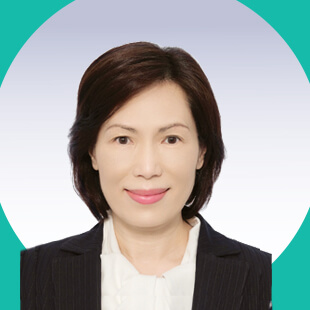
Clinical Excellence
Prioritising Gerontological Care in Hong Kong
Ms Joan Ho Kam-yee |President, Hong Kong College of Gerontological Nursing
Elderly care challenges in Hong Kong are a pressing issue due to the city’s rapidly ageing population. Hong Kong is facing difficulties in meeting this population’s complex needs and providing adequate care and support for older adults. As the city plans for the future, there are some key areas that need to be considered: 1. Healthcare infrastructure:An adequate healthcare infrastructure to meet the needs of the growing older population should include sufficient healthcare facilities, geriatric clinics, and specialised gerontological units within hospitals to provide comprehensive care for older adults.
2. Long-term care and community support:Enhancing options for long-term care and services for community services is crucial for older adults who require assistance with daily living activities. This includes developing and expanding home care services, community outreach programmes, respite care arrangements, community-based rehabilitation services, and day-care centres that offer social engagement opportunities for older adults.
3. Geriatric assessment services:Expanded comprehensive geriatric assessment services can help in identifying the unique needs and challenges faced by older adults. These assessments can evaluate physical, cognitive, functional, and psychosocial health, thus enabling healthcare professionals to develop personalised care plans. Early detection of health issues allows early intervention and treatment, which can significantly improve outcomes.
4. Age-friendly environments:Improved accessibility and infrastructure in public spaces, residential areas, and community facilities can facilitate the mobility of older adults. This can include features such as wheelchair ramps, handrails, and accessible transportation options.
5. Preventive care and health promotion:Regular health screenings, vaccinations, and health education programmes should be promoted to raise awareness about healthy ageing, disease prevention, nutrition, physical activity, and mental well-being.
6. Care coordination and multidisciplinary collaboration:Seamless communication and collaboration among healthcare providers, including geriatricians, gerontological nurses, social workers, psychologists, and other healthcare professionals, can help to improve the care of older adults.
7. Caregiver support and training:Family caregivers can benefit by enhancing their caregiving skills, knowledge, and emotional well-being. This can include caregiver education, counselling services, and respite care options to relieve caregiver burden.
8. End-of-life care:Access to quality palliative care services can facilitate advance care planning discussions and promote a compassionate and dignified approach to end-of-life care.
9. Research and data collection:Evidence-based practices in gerontological nursing and healthcare can improve understanding of the needs and preferences of older adults in the community. It can also inform the development and improvement of community-based care services, ensuring they are tailored to the specific requirements of the ageing population.
10. Support innovative technology solutions:Technologies such as telemedicine, remote monitoring and assistive devices, should be explored to see how they can enhance the delivery of community-based care services, and improve the access, efficiency and quality of care, especially for older adults who have limited mobility or live in remote areas.
11. Public awareness and advocacy:Raising public awareness about the needs and challenges faced by older adults and advocating for policies and programmes that support gerontological care is crucial. This can be done by engaging in public campaigns and collaborating with policymakers to promote the importance of gerontological care.
Prioritising these areas should strengthen Hong Kong’s gerontological care system and improve the health outcomes and quality of life for its older population, particularly if there is a holistic approach involving healthcare providers, policymakers, community organisations, and society as a whole.
Support from nurse educators:
So how can nurse educators support these goals? We play a crucial role in shaping the future of nursing practice and contributing to the development of competent and compassionate nurses who can address the unique challenges of gerontological care. We are always striving to do even better, though. Here are some areas where nurse educators can contribute:- Develop or enhance the gerontological content in nursing education curricula.
- Provide continuing education and professional development by organising workshops, seminars, and conferences focused on gerontological care.
- Collaborate with healthcare institutions to secure clinical placements in geriatric settings which offer hands-on experience in gerontological care and opportunities to develop empathy and an understanding of the unique needs and challenges of the elderly population. Nurse educators can also facilitate reflective discussions and debriefing sessions to help students process their experiences and apply theoretical knowledge to practice.
- Engage in research activities focused on gerontological care. Nurse educators can also encourage and support nursing students to participate in research projects related to geriatric care. Disseminating research findings can promote evidence-based practice and improve the quality of care for the elderly.
- Establish networks and partnerships with different stakeholders involved in gerontological care to facilitate the exchange of knowledge and the sharing of resources.
- Engage in advocacy efforts to raise awareness about the importance of gerontological care and influence policies that support the needs of the elderly population.





